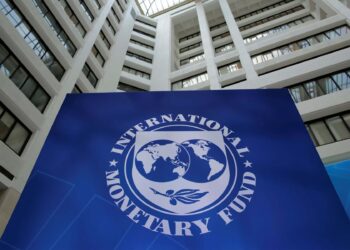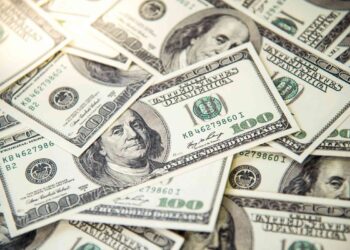Volatile! V-O-L-A-T-I-L-E, we might as well change the word to “The Stock Market”. The stock market is one of the most volatile markets and if not handled properly, it can lead to chaos and disorder within the financial realm. One good example of how the stock market can upheave society is the 2008 Financial crisis. Many of us might be familiar with the 2008 financial crisis, however, most of us ignored the problem saying it only affected a particular part of the global economy. Even as part of a third-world country, we might detach ourselves by saying it was a Western phenomenon, however, the fact is, the 2008 financial crisis had negative ripple effects on every corner of the world.
According to (Boyle and Belluco, 2023), the Global Financial Crisis also known as The Global Recession was a time between 2008-2009 that refers to the massive financial crisis the world faced that impacted individuals, institutions, and mostly millions of Americans. A lot happened including financial institutions sinking, companies merging, and the US Government offering bailouts to keep many institutions afloat. Before delving further some concepts need to be cleared up.
Concepts to Understand Before Delving More into the 2008 Financial Crisis
- Mortgages: According to (Kagan, 2024), a mortgage is a loan used to purchase real estate, and the borrower essentially gives out regular payments of a portion of the principal together with the interest. The property is then used as collateral to secure the loan. Mortgages played an important role in the 2008 financial crisis as it was unregulated and misused which led to the crash.
- Mortgage back securities: According to (Vipond, n.d.), a mortgage-backed security (MBS) is a debt security that is collateralized by a mortgage or a collection of mortgages and is sold in the secondary market making it easy to get into the mortgage business without directly selling home loans. In simpler terms, it is a bunch of bundled-up mortgages that investors can trade.
- Subprime mortgages: According to (Consumer Financial Protection Bureau, 2024), a subprime mortgage is a loan given to those with bad credit scores at higher interest rates. The lender takes on more risk since the buyer has a bad credit score allowing them to charge higher interest rates.
- Collateralized debt obligations: According to (Tardi, 2024), a collateralized debt obligation is a finance product that is backed by loans and other assets. This means, if you are unable to pay, your assets will be used as collateral.
How the 2008 Financial Crisis Happened
The simple answer is honestly greed and moral hazard, but before we get into that let’s see where it all began. According to (Crash Course Economics, 2015), various investors in the 2000s saw that riches could be made with mortgages. You see, the government was selling the rights to mortgages to anyone willing to buy them and investors saw this as an opportunity to benefit from the booming housing market. They thought,” Hey, I could bundle these mortgages up and get enormous interest from them”. These bundles are called mortgage back securities and people were making millions. But they didn’t stop there. They were swimming in wealth and what does one do when they acquire wealth, they want more wealth of course. The investors wanted more ways to sell mortgages and due process went out the window. These companies started to sell sub-prime mortgages to low-income individuals who couldn’t even afford the houses they were buying. At this point, mortgages were being given out like candy and a three-year-old child could have probably gotten a mortgage as well. Jokes aside, people could no longer pay the high mortgage prices and were forced to default. Now this was when the chess piece started to tumble.
According to (Boyle and Belluco, 2023), after the collapse of the real estate market in 2007, over-leveraged banks and financial institutions hit a breaking point when Bear Sterns collapsed in March 2008. After a year, in September 2008, the Lehman Brothers went bankrupt, the country’s fourth-largest investment bank. You would think strong insurance would have been put in place in case their customers defaulted, but yet again you would be wrong. In addition to the subprime mortgages, unregulated over-the-counter exchanges, collateralized debt obligations, and credit default swaps exaggerated the issue. Companies like AIG who were supposed to insure many of these subprime mortgages didn’t even have the money to insure these defaults. You might be thinking, “So if the subprime lenders default and the insurance companies can’t insure the mortgages, then who paid for it?” Well, it was the citizens of course. Their taxpayer money was used by the government to bail out these companies. Again, you might ask why would they have to do that, it was not their fault, right? Well if the government did not step up then the whole economy would have collapsed. According to (Boyle and Belluco, 2023), a lot of consequences occurred including the spread of the crash to the rest of the world, high levels of unemployment, especially in the United States, and the loss of $19 trillion net worth until the recession ended in June 2009. Finally, the government stepped in with the 2010 Dodd-Frank Act which gave the government control over the failing financial institutions.
So, one can conclude that the main reason for the 2008 financial crisis is moral hazard. The subprime lenders knew the insurance companies would take on the risk and the insurance companies knew that the government would bail them out. Finally, the government knew it could use the taxpayer’s money to bail itself out. This assumption made every player in the market greedy and risk-loving. This led to chaos that not only affected America’s economy but also the rest of the world as well. Can you imagine how a few companies like the Lehman Brothers affected the whole world’s economy? This needs to be your push to learn about the stock market and break this chain. If you don’t learn and prepare yourself now, what’s to say the same wouldn’t happen here with the budding Ethiopian stock market?
Detail Solutions for the 2008 Financial Crisis:
According to (Crash Course Economics, 2015), these are some of the solutions/measures taken to manage the crisis:
- Governments bailed out banks: TARP (Troubled Assets Relief Program)- the government spent 250 billion dollars bailing out the banks.
- The Treasury conducted stress tests: The treasury had to find which financial institutions were sound and which ones were at the edge of collapse.
- An 800-billion-dollar stimulus package was given out in 2009: the government had to do some tax cuts and spending to boost the economy.
- The Dodd-Frank Law: This law tried to reduce unnecessary lending, it strived to create a controlled environment and increase transparency to all market players.
Conclusion
The main takeaway from this crisis is how market participants are willing to take on enormous amounts of risk believing that someone else will take the fall. The Ethiopian stock market is booming and we need to ask ourselves whether or not we can identify companies like the Lehman brothers. Will we also make morally hazardous decisions and how can we make the right decisions?
By Tsion Girma























